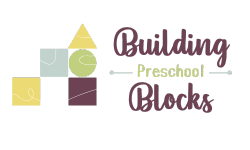Skills Learned in Curriculum
Visual Discrimination
This cognitive skill allows children to recognize and differentiate visual information (shapes, colors, objects, etc.), helping them make sense of the world around them.
- Spells name out loud (w/out looking)
- Can identify all colors, shapes
- Sings and says days of the week
- Sings and says months of the year
- Counts from 1 to 20+
- Identify objects
- Learns each letter of the alphabet (upper-lower case)
- Recognizes phonics (sounds) of each letter
- Can identify opposites
- Recognizes rhyming words
- Recognizes measurements (smallest, tallest, longer, shorter, etc.)
- Memorizes around 15 sight words
- Beginning reading skills developed
- Traces letters/numbers
Fine Motor
Children will learn to use and control their hands, fingers, and wrists, to perform precise and delicate tasks like writing, drawing, and tracing.
- Properly holds pencil, crayon, marker
- Writes name without help (first letter capital remaining letters lower)
- Cut and traces on line
- Traces objects
- Properly holds and uses scissors to cut paper
- Assembles puzzles
- Paints
- String beads
Social & Emotional
Children learn to understand and manage their emotions, develop positive relationships with others, and acquire the skills necessary for effective social interactions.
- Shares toys, crayons and other items
- Shows respect and concern for others
- Talks, interacts with other children (playing, sharing, makes friends)
- Responds to teachers questions/instructions
- Takes turn
- Picks up after a task
- Shows manners
- Follows rules
- Solves problems by using words
- Uses imagination in play
- Finishes seat work in a timely manner
- Participates in group discussions and singing time
- Participates in show-n-tell once a week
- Participates in Christmas program and graduation program
Listening & Speaking
This skill allows children to gradually refine their ability to understand spoken language (listening) and express themselves verbally (speaking).
- Listens and focus for about 10 minutes
- Listens quietly to stories – makes statements regarding the story
- Speaks clearly
- Makes needs known
- Says sentences of at least 5 words
- Uses appropriate tone of voice at school
- Shows manners – uses polite words such as “thank you” and “please”
Auditory
This skill involves both the perception of sounds and the comprehension of spoken language.
- Beginning reading
- Learning Zoo Phonics songs/alphabet
- Learning Nursery Rhymes
- Leap Frog Phonics/songs
Critical Thinking
Critical thinking empowers children to be curious, independent thinkers who can make informed decisions, solve problems, and adapt to various situations effectively.
- Listens and focus’ for about 5 minutes
- Loves story time and tries to listen
- Recalls past events
- Begins to make needs known
- Uses polite words
Gross Motor
This refers to the abilities that involve the use of large muscle groups in the body to perform activities that require physical movement and coordination such as walking, jumping, and climbing.
- Hopping
- Skipping
- Jumping
- Dancing
Practical Life
Here we engage children in age-appropriate activities, providing opportunities for hands-on learning, and allowing them to take on responsibilities
- Can put coat/backpack off/on
- Can line up
- Knows whether he/she is a boy or girl
- Knows most of their address
- Knows most of their telephone number
- Knows how old he/she is
- Says first, middle, last name
- Knows less known body parts (ankles, elbows, knees, etc)
- Follows two to three step directions

